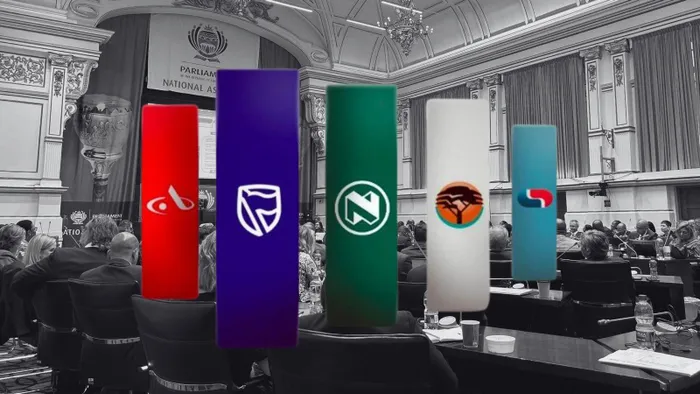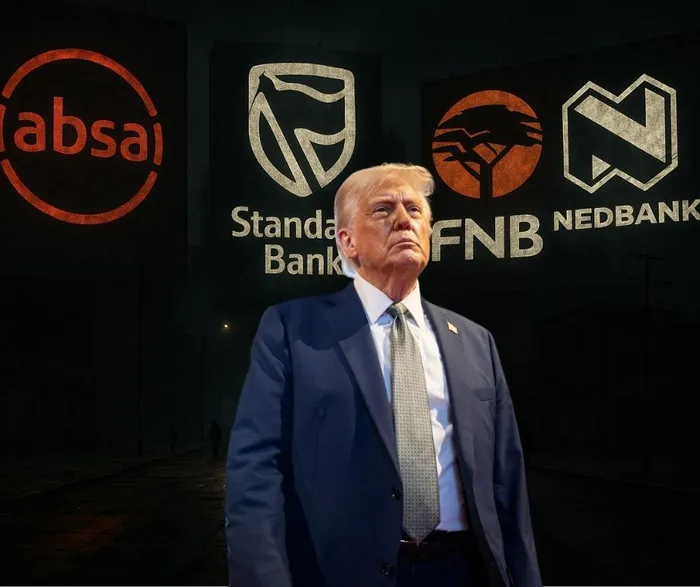
SA's big banks' trade policies in the spotlight
Image: IOL
HEATED calls for a body to regulate the practices of the country's banking sector, especially from political circles, have emerged once again.
They are dismayed with the wanton power that banks currently possess, which included cherry-picking which clients' accounts could be shut without justification.
Parties such as the Economic Freedom Fighters (EFF) and Umkhonto WeSizwe Party (MKP) were very vocal about the establishment a formal adjudication body to oversee banks.

Donald Trump's tough stance on US banks has got South Africans thinking
Image: Lee Ronganger
The conversation resurfaced yet again after US President Donald Trump’s plans to have their nation's banks powers reviewed for what he called “politicising or unlawful banking practices”.
However, unlike the US, the South African Constitution does not give President Cyril Ramaphosa such leverage to regulate the powers of the country's banks, due process must be followed.
Earlier this year, the South African banks came under strong criticism at a Parliamentary standing committee on finance meeting.
The meeting focused on issues pertaining to competition, the provision of credit for productive activities, and transformation.
The South African Reserve Bank (SARB), along with its Prudential Authority Institute, the Banking Association South Africa (BASA), Financial Sector Conduct Authority (FSCA), Standard Bank, FNB, Absa, Investec, Nedbank, and Capitec were in attendance.
In the latter part of 2023, there were reports that banks were charging clients rates based on the colour of their skin.
That revelation caused people to ask pertinent questions about the regulation of banks. The move by Trump’s got people asking similar questions as well as why doesn't Ramaphosa implement similar policies as his US counterpart.
Labour expert Michael Bagraim responded that the country’s Constitution doesn’t allow for Ramaphosa to exercise absolute authority and interfere with the banking sector.
“There is no possibility that our president can do something similar to what the Trump presidency has done. We are governed by a much more inclusive constitutional democracy and our laws would not allow such horrific powers to be given to an individual.
"The American system gives despotic power to the American presidency,” Bagraim explained.
His sentiments were echoed by Professor Siphamandla Zondi, who said the constitutional and political system does not give the president such executive power to punish such wrongdoings.
“In our case, the president should be reporting these matters of debanking and banks’ misdemeanors to the regulators and the reserve bank.
"The fact these issues continue in our banking sector means those tasked with supervisory and oversight roles are weak and ineffective,” said Zondi.
Previously the MK Party had expressed its concerns about banking issues through its member of parliament, Sanele Mwali.
Mwali raised concerns that the banks were displaying and "perpetuating unfairness and neo-apartheid systems of racist practices post-1994".
He accused banks of exercising double standards when dealing with clients.
"We have seen that there were companies covered in controversy in the financial sector, for instance Tongaat, Steinhoff, and Glencor, but they still have accounts with the major banks.
"But Sekunjalo and others have already faced their day in court and they've already experienced closure of their accounts.
Mwali said such actions by the country's major banks was a concern and he supported the notion that there discrimination within the financial sector still existed.
DAILY NEWS
Related Topics: